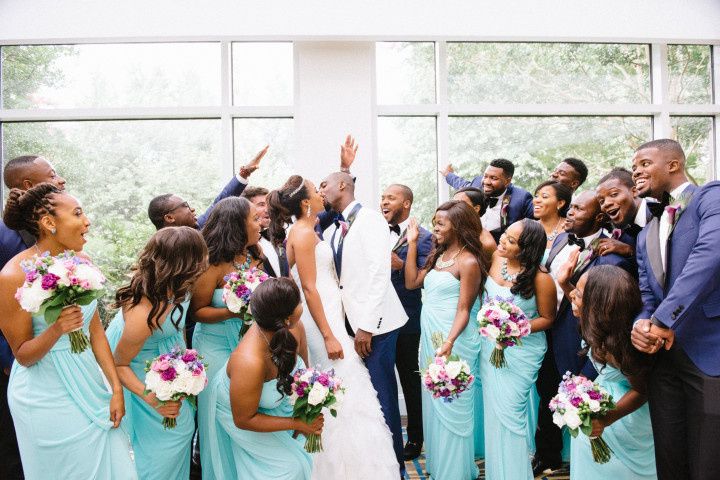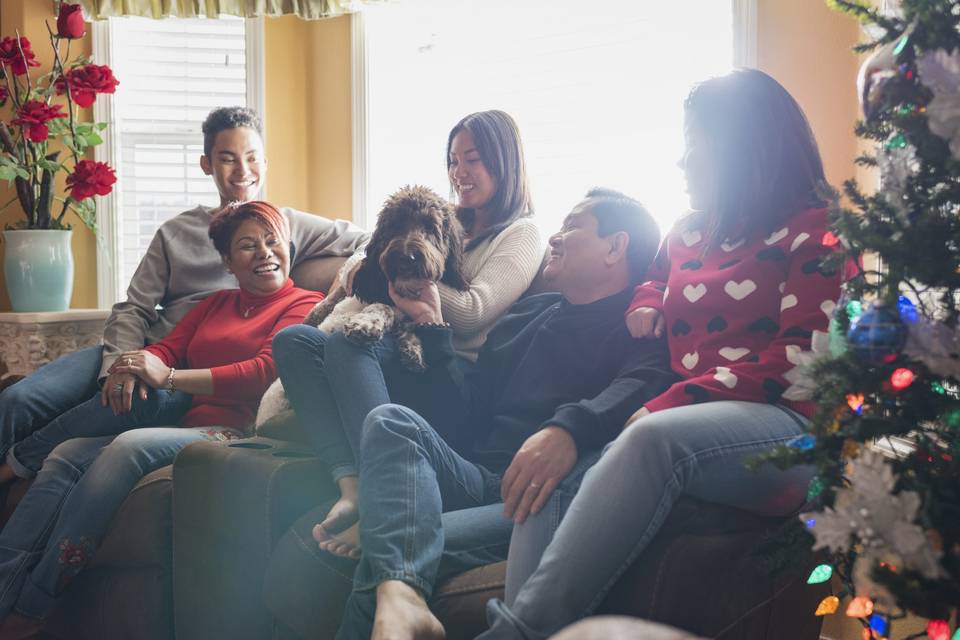What to Do if Your Friends Don't Like Your Significant Other
If your friends don't like your significant other, you're probably feeling pretty stressed. Here's how experts recommend navigating the situation.


If you’re in a relationship with someone that your friends aren’t a huge fan of, don’t fret—you’re far from alone. While it’s certainly not an ideal, or a comfortable, situation to find yourself in, it’s not uncommon, according to experts.
“Some people make really healthy and wise choices in terms of who they befriend and get into romantic relationships with, so there's often common ground in terms of shared values, interests and personalities that tend to lend themselves to friends liking significant others and vice versa,” explains Amanda Stemen, Los Angeles-based licensed clinical social worker and owner of FUNdaMENTAL Growth. “However, I think many people struggle with healthy friendships and/or romantic relationships due to past pain or trauma and, as a result, find themselves dealing with friends who don't like their significant others.”
You may be wondering how much weight you should place on whether or not your buddies are big fans of your partner. According to Stemen it’s important to really consider whether you have close, healthy friendships and if you trust them wholeheartedly. If so, she warns that their dislike of your significant other may be a sign that something is off with your relationship. “In healthy friendships, our friends just want us to be happy and are comfortable being honest with us in support of that—they aren't out to sabotage our romantic relationships,” she says. “If you know deep down your friendships are at best, superficial and at worst, toxic, then you might not want to give as much weight to those friends' opinions.”
If your friends don’t like your significant other, Amy McManus, LMFT, relationship therapist and owner of Thrive Therapy, Inc. recommends first taking some time to figure out why. “Try your best to figure out if it’s your significant other that your friends don’t like or your behavior now that you’re with your significant other,” she says. “If your friends don’t like that you’re spending less time with them, ask yourself if your behavior has changed because you’re growing and changing in the context of this new relationship or because you’re spending most of your time with your significant other for fear that you’ll lose them otherwise.”
While McManus points out that it’s very natural to spend less time with your friends when you enter a new relationship, especially at the beginning while you’re still in the “honeymoon phase,” this may leave your friends feeling jealous if they don’t have their own partner to spend time with. “While many people change within the context of their relationships, some people simply take on many of the opinions, hobbies and friends of their new significant other,” she says. “If this is what your friends are saying, then they might be worried that you are losing yourself in this relationship.”
If your friends don’t like your significant other, you’re probably finding yourself in a number of difficult circumstances. Here are some expert tips for how to handle the situation.
Assess the health and closeness of your friendships.
If you’ve been friends with someone for most of your life and that person has been in your corner throughout your friendship, chances are they mean well and their distaste for your significant other may be valid. “You want to make sure that these are people's opinions you should be taking seriously,” says Stemen. She recommends factoring in how long you have been friends, how much you trust them and whether or not they have your best interests in mind.
Listen to what your friends have to say.
Before you try to convince your friends that their judgement of your significant other is all off, McManus recommends first taking the time to really listen to what they have to say. “They will be much more likely to listen to what you have to say if you first listen closely to their opinions,” she says. “Reflect back what they have said to you to make sure that you have clearly understood their position.”
Create opportunities for your friends and significant other to spend time.
There’s a good reason for the saying “first impressions stick.” If your friend(s) only had a brief encounter with your significant other, they may have gotten the wrong impression. Stemen recommends organizing a fun get together so that both your friends and significant other can get to know one another better. “Everyone can have off days or be nervous in the beginning, which can rub some people the wrong way, and friends can sometimes be overprotective, so you want to make sure there are multiple opportunities for the important people in your life to get to know one another,” she says/
Avoid situations where tensions could mount.
If your friends truly don’t like your significant other and aren’t interested in getting to know them any better, McManus recommends juggling your schedule so that you don’t neglect either your relationship or your friendships. “Over time you will probably develop new relationships as a couple, with other couples that are a better match,” she says. “This is often a natural part of the evolution of friendships—and, who knows, next time things may be switched around and you may not like the S.O. of your friend!”





